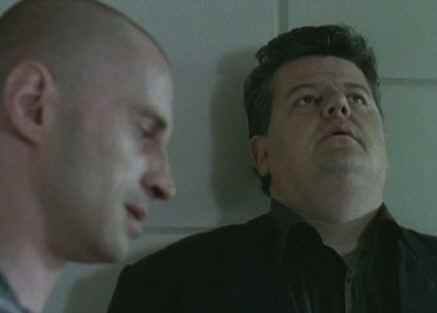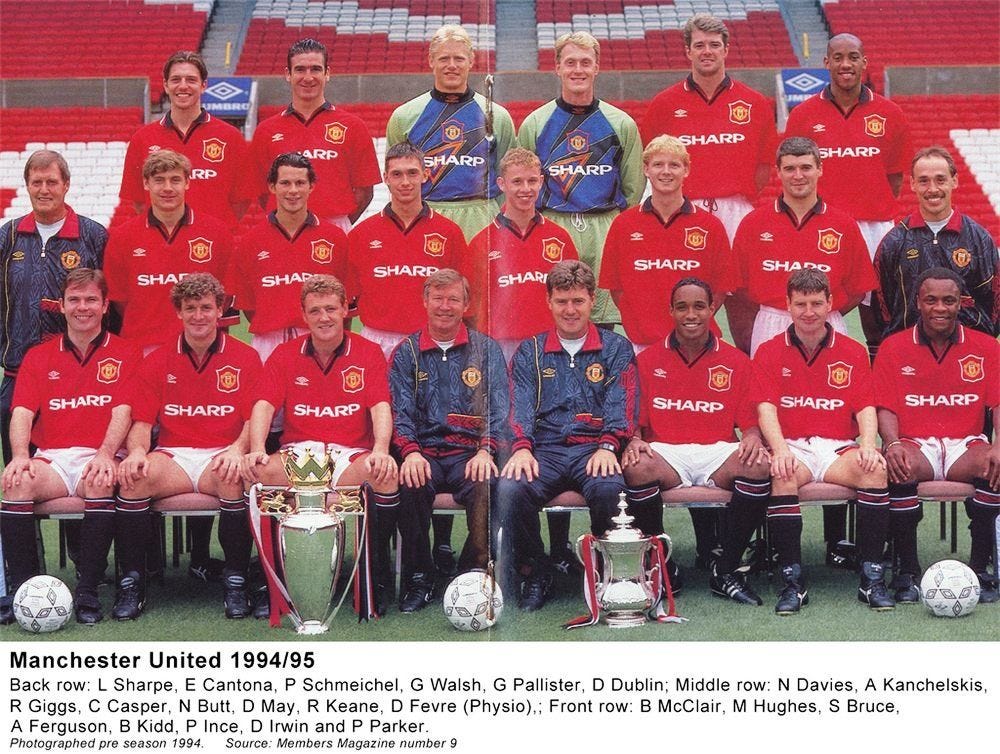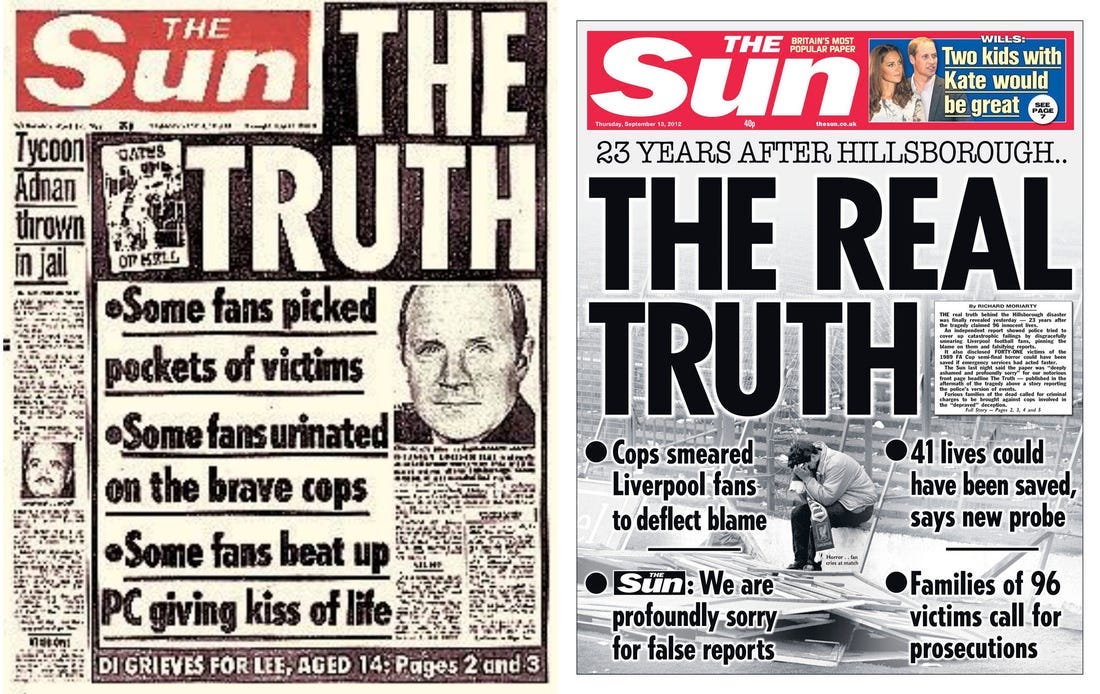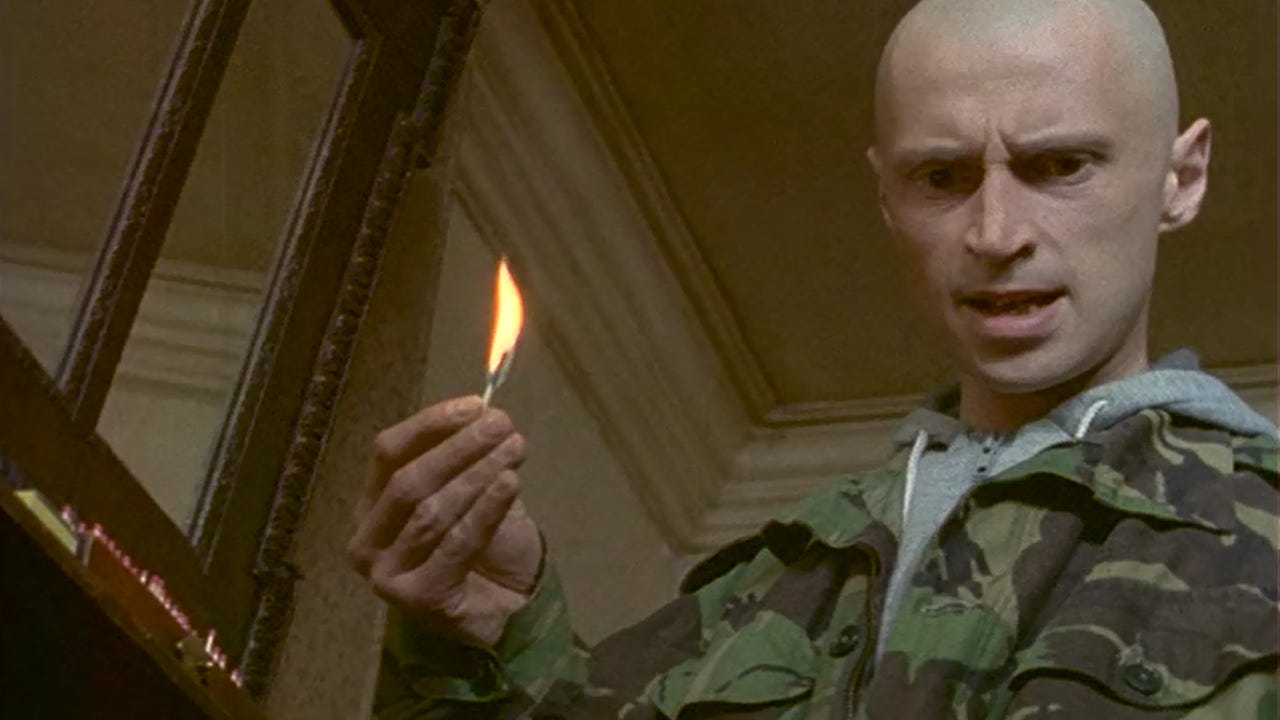How Cracker can help with loss
This episode of the seminal police drama shows that grief is so multi-faceted that discovering its roots doesn't always lead to a solution
When I started this newsletter I had a rough idea of the TV shows and films I would cover in the weeks ahead. I also had what I thought was a strong reason for picking each subject. However, when I rewatched a programme or film I wasn’t expecting the angle of the article to change completely. I guess I should’ve predicted this as Episodes of My Life is essentially about how a piece of culture makes me feel rather than a discussion of its artistic merits. And how you feel varies every day.
About a fortnight ago I decided to look back at a triple episode of crime drama Cracker that was first screened in 1994 and discuss how its controversial depiction of a racially motivated murder made me feel. I last saw the series about five years ago and I expected to write something about how hate crimes are always seen through a white lens or how making something so traumatic a plot point was problematic. Instead I want to talk today about grieving; I’ve suddenly found myself plunged into mourning a loss. My father died in December but we were estranged and I didn’t feel (and don’t feel) much about him. But I recently realized after the stress of lockdown eased that I have this feeling of emptiness where the mourning should be.
This episode of the Jimmy McGovern called ‘To Be A Somebody’ starred Robert Carlyle two years before Trainspotting. His character, Albie Kinsella, is almost a prototype of Begbie but he’s shown to have a lot more motivation for his heinous crimes and, in fact, is suffering from PTSD from the Hillsborough disaster and the death of his father. He goes on a killing spree, which includes murdering a Pakistani shopkeeper and a policeman (Christopher Eccleston) making it a tough watch, especially when you know what’s coming. However, I do recommend it as it has a few surprising comedic moments and the acting, especially from Robbie Coltrane as criminal psychologist, Fitz, is sublime. I honestly think it’s the finest moment of British TV. You can watch it on YouTube.
My dad wanted to speak to me on his death bed but I refused. We hadn’t had any contact for ten years after I severed ties with him, fed up with a lifetime of his selfishness and abuse. I had been contacted by various distant family members telling me he was sick and I should have gone through the motions by pretending he was my father and I was his son.
But we never had a relationship. He would tell me he loved me by email and text message but there was a cavernous disparity between his words and actions. The final straw was his visit from Malaysia for my sister’s wedding where he preferred to stay in a hotel instead of with me: he made no effort to meet, repeatedly lied about his whereabouts and spent the time drinking with his mates.
When he died at the end of last year I didn’t tell anyone: he was so insignificant to me (and I to him). I especially didn’t want anyone to say to me ‘sorry for your loss’ as it didn’t really seem there was anything left to lose - I had done my mourning years ago. But it turns out that I never did deal with all the pain I suffered from growing up with an emotionally negligent father.
His legacy is to leave me with a simmering anger which I have to diagnose, recognise and deal with on a daily basis. It’s the white noise of my existence and it’s constantly draining discovering the ways it manifests itself in my interactions with other people.
One of my biggest triggers is when I feel I’m not being heard or listened to. And plenty of people I have regular contact don’t truly listen to me.
Take this conversation I recently had with a dad whose daughter is friends with my daughter:
Me: I found it so difficult dealing with my X’s tantrums when the school was shut but she’s much happier now
Him: Well, you’ve got the Easter holidays coming up
That seemingly innocuous comment made me feel angry, lost and hurt: my comment was intended to impart my raw emotional response to the manifestation (the tantrums) of my child’s pain and he totally overlooked this and turned it into a sarcastic jibe. He hasn’t seen or heard me, plus he also assumes that I don’t enjoy dealing with my child on a day-to-day basis. Which I do: that’s why my daughter’s sadness was so hard to respond to.
I then spent days obsessing over that short exchange until I realized that I wasn’t angry with this acquaintance but with my father. Particularly how we weren’t connected and couldn’t communicate.
This episode of Cracker shows what happens if this type of anger isn’t contained and manifests itself as revenge. It takes the viewer to a very dark place of inside Albie’s head: a man who is white, working class and living a life of deep resentment. Writer Jimmy McGovern doesn’t dwell too long on the time before Albie decides to act out his anger but (in Columbo-style) we see him at the start of the episode as a bright, but discontented, manual worker who is missing his divorced wife and his daughter.

The opening scenes show a sparse funeral, a dark bedroom being cleared and an argument over a crossword. Cleverly these images are juxtaposed with Fitz’s day-to-day existence. So where Albie is working hard in a factory, Fitz is throwing money away at a casino, impelling the viewer to empathise with Robert Carlyle’s character.
The trigger for Albie’s violence is when a Pakistani shopkeeper refuses to allow him to have a newspaper on credit. (The Asian actor is played by Badi Uzzaman who was killed in a similar way in an episode of long-running BBC soap Casualty. It still haunts me to this day and I might revisit it in a future Episodes.)

It’s the final humiliation Albie can bear and he takes his revenge by stabbing the newsagent to death. He then vows to kill 96 people in an eye-for-an-eye revenge for those killed at Hillsborough five years after the event. The body count mounts and the scene he kills Ecclestone’s cop in is still breathtakingly brutal. The beginning of the final interview in the last episode where Albie is chanting “L-I-V-E-R-P-O-O-L FC” still makes my heart thump and the electric scene unfolds into an examination of inherited paternal pain.

“I used to talk football with my dad,” says Fitz. “It was safe.” It’s then discovered that Albie’s PTSD over Hillsborough meant that he couldn’t communicate with his father. “It took him five years to die,” says Albie. McGovern’s a scriptwriter who’s adept at marrying the personal with the political and using the fallout from the football stadium disaster in this way was very brave.

I don’t think, McGovern, wants you to excuse Albie’s killings but he does use the character to show the viewer how much anger and pain was caused by the police, newspapers and the Tory government of the time. And as much as the viewer empathises with Albie, they find his actions abhorrent and his twisted reasons repellent. (Incidentally, you also end up feeling this way about Fitz who drinks, gambles and womanises)
In the denouement interrogation, Albie is compared to Peter Sutcliffe and I think the episode’s title ‘To Be A Somebody’ reflects the idea that revenge can make someone famous (or just infamous). So to be a somebody Albie went on a killing spree.
But to really be a somebody in this life you have to own your pain and not pass it on. It does take a lot of energy and it does take a lot of bravery. Because it’s easy to moan about an annoying acquaintance who doesn’t listen or to blame your father for your failings.
But it takes real courage to change familiar patterns and to not pass your anger on.
But are there times when acting out your anger is the only solution? Next week I will be venturing stateside for the answer by examining an episode of US legal series The Good Fight that features a Nazi punch. If you’ve never watched the show it’s on Amazon Prime in the UK. It’s totally ridiculous even before you get to Michael Sheen’s character. But it is progressive and anti-racist.
For those who don’t stream anything (VPN, hey?) the week after I’ll be looking at an episode of Newsnight (WTF) when Jeremy Paxman interviewed Dizzee Rascal (BONKERS). You can see it here.



